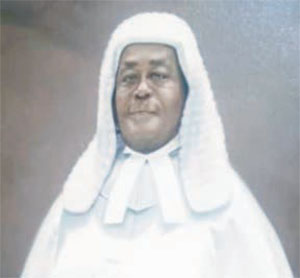Remembering and honouring national heroes is a duty which when ignored, reduces a people to nothingness.
To deliberately refuse to remember and honour our heroes, is not only a disservice, but an effective way of marginalising the important roles these icons played in the country.
Besides rendering a deserving honour to the departed icons, such gestures offer us the opportunity to teach the younger generations the true history of our country.
Last weekend’s lecture, organised in honour of one of the makers of our nation – R.S. Blay – was an engagement which offered many the rare opportunity to learn about the sterling roles played by our political forebears.
It was a journey laden with risks yet, people like R.S. Blay embarked upon it just so we would reach the final destination of freedom and justice.
The history of Ghana’s attainment of independence would be incomplete without the mention of R.S. Blay’s quota to the establishment of the United Gold Coast Convention (UGCC), where it all started.
The controversies which often rear their heads in historical narrations are properly dealt with during such lectures. It was auspicious therefore, when Nana Kobina Nketsiah V, the Omanhene of Essikado, acknowledged the role of R.S. Blay in the formation of the UGCC. For those who did not know it, they have been duly educated by one of the custodians of our heritage. The Omanhene’s contribution rightly put paid to the sometimes befuddlement surrounding our independence history.
Remembering such political and legal icons provide us with the opportunity to add to our lineup of role models, their lives worthy of emulation.
R.S. Blay’s life, which spanned the Gold Coast and post independence period, stands out and must be celebrated on prescribed dates on our national calendar.
His persona still stood tall many years after independence, his speakership of the first Constituent Assembly in 1969 stuck in our history books.
It was unsurprising that President Akufo-Addo, a legal luminary, showered copious plaudits on the man whose place in the roll call of Supreme Court justices is indelible.
To serve humanity in their parts of the world is what great personalities do so that one day, when they are no more on this ephemeral world, the living would remember them with relish and exalted deference.
Those who organised the programme deserve pats on their backs for their efforts have opened for us a chapter in our history, unknown to some members of the younger generations.


